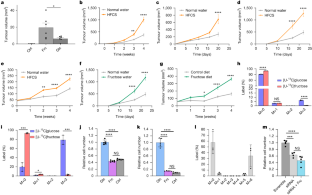2024-12-12 ワシントン大学セントルイス校
<関連情報>
- https://source.washu.edu/2024/12/brain-tumors-hijack-circadian-clock-to-grow/
- https://www.cell.com/cancer-cell/fulltext/S1535-6108(24)00447-1
日常的なグルココルチコイドは膠芽腫の成長と宿主との概日同調を促進する Daily glucocorticoids promote glioblastoma growth and circadian synchrony to the host
Maria F. Gonzalez-Aponte∙ Anna R. Damato∙ Tatiana Simon∙ … ∙ Jingqin Luo∙ Joshua B. Rubin∙ Erik D. Herzog
Cancer Cell Published:December 12, 2024
DOI:https://doi.org/10.1016/j.ccell.2024.11.012
Graphical abstract
Highlights
•Glucocorticoids promote glioblastoma (GBM) growth in a time-of-day dependent manner
•Loss of daily glucocorticoid signaling reduces GBM growth and disease progression
•Mouse and human GBM cells have intrinsic daily rhythms that synchronize to the host
•Glucocorticoids synchronize daily clock gene expression in GBM
Summary
Glioblastoma (GBM) is the most common primary malignant brain tumor in adults with a poor prognosis despite aggressive therapy. Here, we hypothesized that daily host signaling regulates tumor growth and synchronizes circadian rhythms in GBM. We find daily glucocorticoids promote or suppress GBM growth through glucocorticoid receptor (GR) signaling depending on time of day and the clock genes, Bmal1 and Cry. Blocking circadian signals, like vasoactive intestinal peptide or glucocorticoids, dramatically slows GBM growth and disease progression. Analysis of human GBM samples from The Cancer Genome Atlas (TCGA) shows that high GR expression significantly increases hazard of mortality. Finally, mouse and human GBM models have intrinsic circadian rhythms in clock gene expression in vitro and in vivo that entrain to the host through glucocorticoid signaling, regardless of tumor type or host immune status. We conclude that GBM entrains to the circadian circuit of the brain, modulating its growth through clock-controlled cues, like glucocorticoids.



